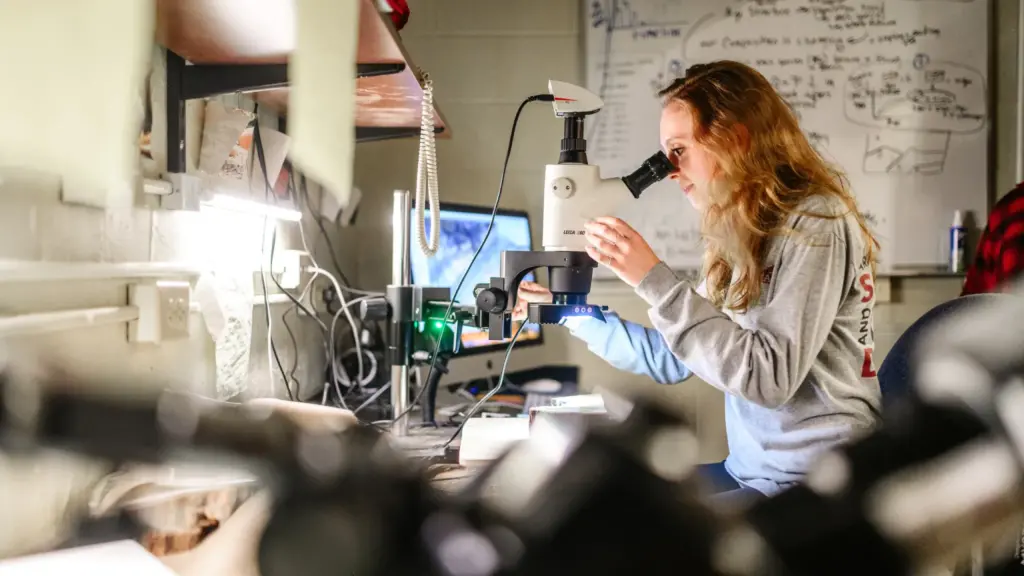Overview
- Degree Level
- Undergraduate
- Degrees Offered
- Bachelor of Arts
- school/college
- College of Arts and Sciences

Arcadia University offers an accelerated, combined program with Salus at Drexel University (formerly the Pennsylvania College of Optometry), allowing students to earn a Doctor of Optometry (OD) degree in just seven years.
Students spend the first three years at Arcadia University, completing foundational coursework in the physical and biological sciences. During the fall of their third year, students take the Optometry Admission Test (OAT). Scores, along with academic records, are reviewed by a joint Arcadia-Salus admissions committee. Salus at Drexel reserves a minimum of four seats annually for qualified Arcadia students. Selected students begin their optometry studies at Salus the following year.
After successfully completing their first year at Salus, students receive a Bachelor of Arts in Interdisciplinary Science from Arcadia. Upon completion of the four-year program at Salus, students are awarded the Doctor of Optometry (OD) degree.
Because the Pre-Optometry program is highly structured, studying abroad normally entails adding a year of study. Students interested in this option consult with the adviser as soon as possible.
Required Course
Learn principles of weak chemical interactions applied to the structure and function of macromolecules, especially proteins, and study non-covalent binding of substrates and enzymic catalysis are treated both conceptually and quantitatively, as well as mechanisms of metabolic control, including allosterism and covalent modification, are related to protein structure.
Required Course
Explore of the functioning systems of the human organism, emphasizing mechanisms governing the function of each tissue type as part of the whole organ, and it examines various systems in the laboratory using a variety of experimental techniques.
Required Course
Study cell structure and function at the molecular level encompassing enzymes, membranes, respiration, protein targeting, intracellular trafficking, information transfer and storage. The laboratory emphasizes modern biochemical and molecular techniques.
